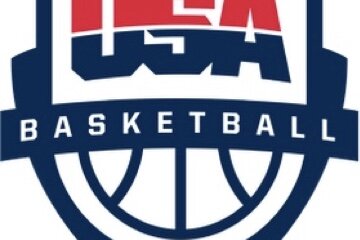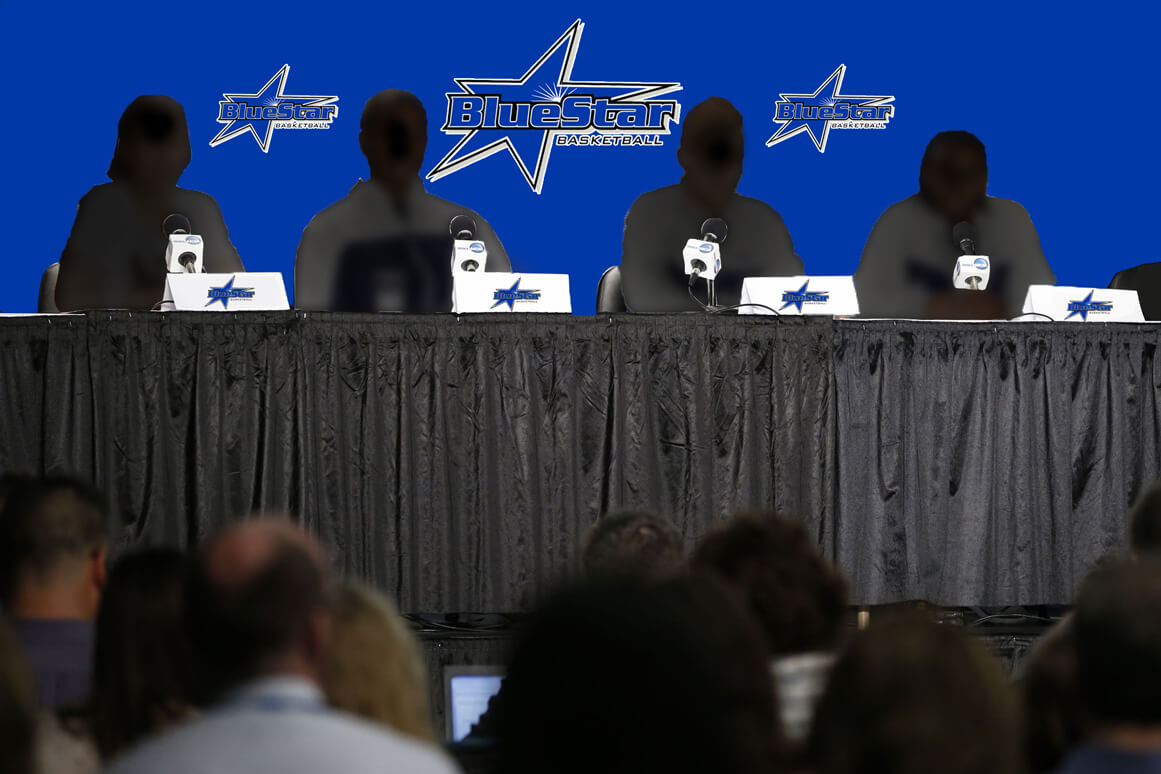One of the great distinctions that people in women’s college basketball — especially coaches — like to make about their sport is the importance placed on education.
No one-and-dones here, some like to boast, but All-Americans staying for four years, getting their degrees and then heading off to the pros, if they’re good enough. Nobody from shoe companies or sleazy middlemen exploiting the basketball talents of teenagers for quick profits.
Compared to its male counterpart, the sport of women’s basketball does better embody the ideal NCAA ethos of classroom accomplishment and academic success. Not many bad APR headlines to worry about here either.
But when Daisha Simmons had to alter her post-graduate educational plans this spring, she was unwittingly pulled into one of the increasingly ugly recent developments at the top levels of the women’s game.
Simmons, a former New Jersey prep star and Rutgers signee who played the last two seasons at Alabama, became the third relatively high-profile women’s player to have her transfer attempts blocked by a former school in a little more than a year. 
In early 2013, Florida refused to release star freshman Sydney Moss to another BCS school after she asked for a transfer. She tore up the ranks of Division III at Thomas More College, near her Kentucky home, before tearing up her knee in the post-season. (Moss, the daughter of former NFL star Randy Moss, is on Thomas More’s current pre-season roster.)
This spring, as the outrageous Leticia Romero saga was unfolding at Kansas State, Simmons opted to leave Alabama, where she had been denied admission to its MBA program, to return closer to home for her studies and what she hoped would be a final season of basketball.
Alabama coach Kristy Curry balked, complaining of the late timing of Simmons’ departure, then limited her options to St. John’s and Seton Hall, where she is now enrolled.
The end of her playing career is still up in the air, as the NCAA turned down Simmons’ request for immediate eligibility, due to Alabama’s opposition. The NCAA ruled that she must sit out this season under transfer rules but will be eligible for the 2015-16 season for the Pirates.
Simmons has hired Montgomery attorney Donald Jackson, who represented Romero and has taken on the NCAA plenty of times about its transfer policies, to try to get the organization to change its mind and let her play this season.
If this is about education, then why the haggling over one season of basketball that must be played right now?
Because in addition to her MBA ambitions, Simmons has family medical issues that have become grave. Her brother is in the final stages of renal disease, and her mother, who is working two jobs to pay the bills, has some health problems of her own.
Simmons, who turns 24 in January, just wants to get on with her life, whether it’s working in the business world, or taking a stab at professional basketball, said Tony Bozzella, the Seton Hall coach who’s been publicly denouncing Alabama’s actions.
“She needs help,” Bozzella told me. “I have nothing to gain here. The girl gets to play for me another year, whether it’s this year or the next. I’m worried about her family, that’s why I’m upset. She needs to be able to support her mother.”
But basketball factors are at the heart of the matter, as this tug-of-war involves two coaches trying to rebuild languishing programs.
Seton Hall was 20-14 a year ago, its first 20-win season in 19 years, and earned a berth in the postseason WNIT out of the reconstituted Big East. Four starters return, and Simmons is listed on the Pirates roster as one of seven newcomers, and is one of three transfers.
Curry, who came to Alabama last year after seven largely unfruitful seasons at Texas Tech and took Purdue to the 2001 NCAA title game early in her career, began shaking up the Crimson Tide shortly after a 14-16 season. After they went 7-9 in the SEC, their best conference record in a dozen years, Curry immediately pruned the roster of four players, mostly at the bottom of the season box score.
Simmons would have been Alabama’s top returning scorer after averaging 13.8 points a game as a junior. Without her, it will be tougher for the Tide to compete in an SEC that had eight NCAA teams last year, and returns most of its top playing talent.
Alabama officials have said little about the case, with associate athletics director Doug Walker telling various media outlets in recent days that the school considers the NCAA’s ruling the final say and that it won’t comment further.
I’ve left a message with Curry seeking comment but have not received a response.
At Kansas State, AD John Currie brought up concerns about tampering involving the former staff, which has since landed at Northern Colorado. Romero finally was released, and is sitting out this season at Florida State.
Bozzella denied to me that he had been recruiting Simmons before she decided to leave Alabama.
“This is a personal and educational issue for her,” he said.
Alabama has been taking a public and media beating over the Simmons story, just as Kansas State did in in refusing Romero’s transfer. Jay Bilas, Fran Fraschilla and Seton Hall grad Dick Vitale have sounded off on what Simmons’ mother calls a “spiteful” decision by Alabama.
There’s also a social media campaign under the Twitter hashtag #FreeDaishaSimmons to get Alabama to relent.
On Friday, Brittany Jack, one of the four Alabama players released from her scholarship in March, blasted Curry in describing what she called a demeaning team environment. Jack averaged 2.2 points and 9.7 minutes in 24 games, and like Simmons had graduated but had one season of eligibility remaining. She said she was never given a good reason for having her scholarship taken away:
“The one question that throbs in my head every single day is: ‘Is this how someone who has done all of the right things is treated?’ Exhibiting such qualities as integrity, hard work, commitment, and sheer passion no longer matter?
“If not, then the game we all love is being tainted by the very industry it’s centered around. Is this not the kind of senior leadership and experience that is valuable to a team? Is this the kind of message that we want to send to young women? That being a woman of integrity, selflessness, enthusiasm, and passion is not worth anything? This was the message that was sent to me that day.”
These aren’t new issues — especially being “over recruited” — and Jack’s comments may seem like sour grapes. But they also reflect the power coaches have to use NCAA rules to control the basketball careers, and even the educational opportunities, of their players.
Players are starting to speak out all across college athletics about what it’s really like for some of them, and when they do, it’s not always to exalt the NCAA ideal.
As Simmons told the New York Post, “It’s just the latest example of how the NCAA and its archaic rules favor the schools and their coaches.”
While media types and pundits trash the NCAA and its transfer rules, those within women’s basketball would be wise to be proactive. Outside “shaming” can only go so far.
Instead of waiting for some badly needed NCAA reform that may never come about any time soon, if at all, how about really backing up the talk about education? How about working for the best interests of players?
I realize that sounds quaint, and this may be increasingly unlikely for coaches earning mid- and six-figure salaries and who are under greater pressure than ever to win.
But while three incidents don’t necessarily make a trend, women’s college basketball is starting to become synonymous, to some degree, with an issue that appears to be downright abusive and petty.
Wendy Parker is a sportswriter and web editor who has covered women's basketball since the early 1990s. She is a correspondent for Basketball Times and formerly covered women's and college sports, soccer and the Olympics at The Atlanta Journal-Constitution. She is the author of "Beyond Title IX: The Cultural Laments of Women's Sports," available on Amazon, and the creator of Sports Biblio, a blog about sports books and history.

Latest Articles
-


Christopher Lawlor
/ 3 days agoU16 USA Women’s Basketball National Team roster selected for 2025 FIBA AmeriCup in Mexico from June 16-22
COLORADO SPRINGS, Colo. — USA Basketball announced today the 2025 USA Women’s U16 National...
-
Christopher Lawlor
/ 3 days agoU16 USA Men’s Basketball National Team roster chosen for 2025 FIBA AmeriCup next week in Juarez, Mexico
COLORADO SPRINGS, Colo. – The team is set and now for the games South...
-
Christopher Lawlor
/ 1 week agoNO REGRETS: Chris McNesby steps away from Roman Catholic (PA) basketball gig after second tenure with his alma mater; Bradley Wanamaker takes over coveted post
BENSALEM, Pa. – Chris McNesby has lived many lives within the Philadelphia Catholic League....
-


Events
/ 1 week agoMORE CHANGE: Montverde Academy (FL) hires Anthony Jones from nearby Orlando as girls’ head basketball coach of national program
BENSALEM, Pa. – For the second time in three months, Montverde (Fla.) Academy made...



